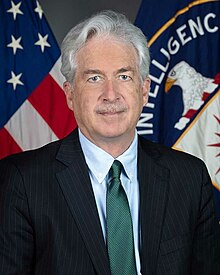Who Tried to Pull the Rug on Netanyahu, and Why?
The young American generation of today says: We will not identify with suspect genocidal tendencies against an indigenous people.

All Global Research articles can be read in 51 languages by activating the Translate Website button below the author’s name (only available in desktop version).
To receive Global Research’s Daily Newsletter (selected articles), click here.
Click the share button above to email/forward this article to your friends and colleagues. Follow us on Instagram and Twitter and subscribe to our Telegram Channel. Feel free to repost and share widely Global Research articles.
Global Research Wants to Hear From You!
***
The core issues at the heart of release of hostages held in Gaza were two: A complete cessation to the war and full withdrawal of all Israeli forces.
Netanyahu’s position was that whatever the hostage outcome, the IDF would return to Gaza and that the war there might continue for ten years, he said.
These were the most sensitive words in Israeli politics – with Israeli politics electrically polarised around them. The continuation or fall of the Israeli government could hinge on them: The Right had warned that they would quit the government unless the invasion of Rafah were green-lighted; the Biden position, however, was communicated to Netanyahu by phone as not just ‘no Rafah light’, but rather, ‘Rafah zero’.
Image is from the Public Domain

Then these explosive words – cessation of military operations and complete Israeli withdrawal – burst forth in the final text as agreed by the mediators in Cairo; and subsequently in Doha, on Monday, taking Israel by complete surprise. CIA Chief Bill Burns had represented the U.S. in both sessions, but Israel had chosen not to send a negotiations team.
Multiple Israeli sources confirm that the Americans gave no ‘heads up’ of what was coming: Hamas announced the bombshell agreement; Gaza erupted in victory celebrations, and huge protests besieged the government in Jerusalem, demanding acceptance of the Hamas terms. It was tense. There was a whiff of civil war to the huge protests.
The Israeli government alleges that it was ‘played’ by the Americans (i.e. by Bill Burns). It was. But to what end? Biden was adamant that a Rafah incursion must not proceed. Was this Burns’ means to achieving that objective? Using ‘sleight of hand’ in the negotiations (inserting the ‘red-line’ words) into the text without telling Tel Aviv in order to get to ‘yes’ from Hamas? Or was it to precipitate a change of government in Israel? Its policy on Gaza whas beenas imposing a very heavy election campaign toll on the Democratic Party.
In any event – after the Hamas bombshell announcement – the IDF went ‘Rafah light’, taking the empty Philadelphia corridor (in breach of the Camp David Accords), incurring few casualties, but keeping Netanyahu’s government intact.
Maybe the little deception ‘to get Hamas to ‘yes’’ was viewed in Washington as a clever ploy – but its consequences are uncertain: Netanyahu and the Right will share dark suspicions about the U.S. role. Washington has shown itself (in their view) as an adversary. Will this episode make the Right more determined; less ready to compromise?
In this context, the base division within current Israeli politics is salient. A small plurality of Israelis (54%) believe that there is legitimacy in comparisons between the holocaust and the events of 7 October. And we can see that the conflation of Hamas with the Nazi party is increasingly common amongst Israeli (and U.S.) leaders – with Netanyahu describing Hamas as “the new Nazis”.
Whether we agree or not, what is being said here through this categorisation is that a plurality of Israelis harbour existential fears that the gathering storm surrounding them is the start to a ‘new holocaust’ – which, in turn, implies that the ‘Never Again’ amorphism translates into a binary kill or be killed injunction (drawing on Biblical texts for Talmudic validation).
To understand this is to understand why those few words inserted into the negotiation proposal were so explosive. They implied (in the view of half of Israelis) that they would have no option but to ‘live’ or ‘die’ under the threat of renewed holocaust (with Hamas predominant in Gaza and Hizbullah in the north).
The other portion to Israeli opinion is less apocalyptic: They believe that some return to Occupation and the status quo ante might be possible, especially were the U.S. to succeed in persuading Arab States – jointly with Israel – to eliminate Hamas from Gaza, and to agree to police a de-militarised and de-radicalised Strip.
Cynically viewed, perhaps the practice of ‘mowing the lawn’ (as the periodic IDF incursions to kill militants are euphemistically known) might be less frightening than the notion for Israelis of having to fight an existential war. In this context, 7 October would be viewed as an outsized ‘lawn mow’, but not something requiring a more radical shift of Life-Style.
That the representatives of this current in the Israeli War Cabinet did not resign from government on learning of Netanyahu’s subsequent rejection of the Hamas proposal – may be connected to the fact that Saudi normalisation with Israel is now not in prospect – Saudi normalisation being the pillar from which some return to the status quo ante might be achieved.
All of which calls into question the motive of War Cabinet members who call for Israel to accept Hamas’ terms. Whilst empathy for hostage families is understandable, it does not address the underlying crises – beyond wishful thinking about the Arab world joining together in an anti-Iranian unity, and digging Israel out from its occupation conundrum.
This might give consolation to the White House facing its own electoral difficulties, but it is hardly a sustainable strategy.
The Hamas agreement bombshell likely has fed into two other factors that are colouring sentiment in Israel: Netanyahu, renowned for his political soothsaying, and holding up his intuitive finger to the wind, detects, he says, the Israeli electorate sliding to the Right. He is becoming more confident that he can win the next Israeli general election.
The first factor is the student protests unfolding across the West; and the second is the threat that the ICC might issue arrest warrants for the PM and other prominent leaders.
David Horovitz, the editor of Times of Israel, writes that:
“the underlying goal of the encampments and marches at Columbia, Yale, NYU and the other campuses is to render Israel indefensible — in both senses of the word – and thus deprive Israel of the diplomatic and military means to survive the ongoing effort at its destruction – as effected by Iran and its allies and proxies. At the root of this strategy is, of course, the oldest of hatreds”.
In other words, Horovitz is identifying a majority of the student protestors not so much as having human empathy for the plight of Gazans, but as being purveyors ‘soft-power’ holocaust. Horovitz concludes that “if those enemy states, terrorist armies and their facilitators get done with Israel – they’ll be coming for Jews everywhere”.
The last element concerns the putative arrest warrant being issued by the ICC. Netanyahu has a huge ego, perhaps more than most politicians; yet there is no doubt that in spite of the anger directed at him for the errors of 7 October, he is indisputably the standard-bearer for that segment of the Israeli electorate that believes – like Horovitz – that Israel is facing a concerted effort to destroy the Zionist state.
The arrest warrant, therefore, is perceived as more than just an attack on an individual, but more as a part of that wider effort (per Horovitz) to misrepresent Israel and to deprive it of the diplomatic means to defend itself.
Needless to add that this is not the view across the rest of the world – yet it serves to point out how inward-looking, how isolated and fearful the Israeli public is becoming. These are warning signs. Desperate people do desperate things.
The reality is that Israel has attempted to establish a late-era settler-colonisation on lands with indigenous population. The first phase of revolt versus colonialism erupted in the post-WW2 era. We are now living the second stage of global radical anti-colonial sentiment (manifesting strategically as BRICS), but targeting today financialised colonialism posing as the ‘Rules-Based Order’.
Israelis habitually hang out two flags on special occasions: The Israeli flag and next to it, the U.S. flag. ‘We are American too: We are the 51st state’, Israelis would say.
‘No’, the young American generation of today says: We will not identify with suspect genocidal tendencies against an indigenous people.
No wonder some of the ruling élites are desperate to outlaw the critical narratives. If Israel is the target today, might tomorrow the narratives be critiquing Washington’s facilitation of colonial massacre? Did they (the Biden Team), perchance, toy with pulling the rug from under Netanyahu – to preserve the status quo in Israel a little longer (until at least after the U.S. Elections)?
*
Note to readers: Please click the share button above. Follow us on Instagram and Twitter and subscribe to our Telegram Channel. Feel free to repost and share widely Global Research articles.
Featured image is from TUR

